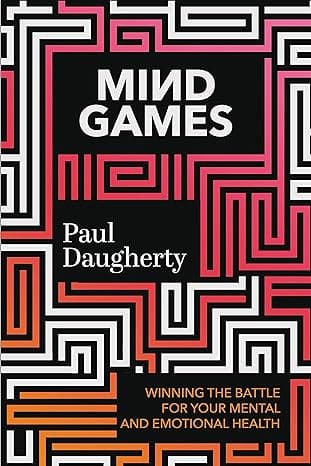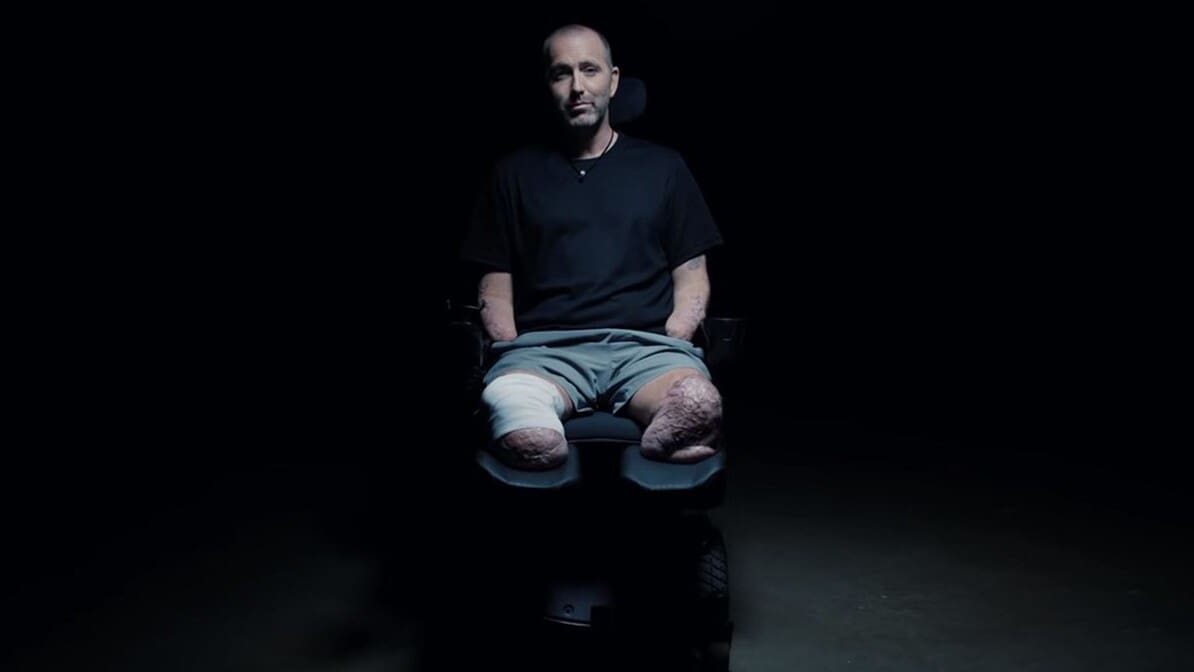
YouTube, Beethoven, and Finding Truth
 Excerpt taken from Mind Games: Winning the Battle for Your Mental and Emotional Health by Paul Daugherty
Excerpt taken from Mind Games: Winning the Battle for Your Mental and Emotional Health by Paul Daugherty
Chapter 2
YouTube, Beethoven, and Finding True Worth
Moving from Insecurity to Trust
“Hey, Paul, we started putting sermons up on Victory’s YouTube channel. You should check it out sometime.”
It was a passing comment from our media director, and I happened to have a few minutes of spare time before my next meeting. So I fired up my Firefox browser and clicked over to one of my recent sermons.
You know what I found there? Comments!
- “Powerful message from Pastor Paul. We are blessed to have him at Victory!”
- “I wish I lived closer to Tulsa so I could attend this church more often.”
- “Love the anointing on this man. Strong word from the Lord today.”
Oh, man! All of a sudden I was leaning forward on the edge of my seat. This was manna in the wilderness! This was validation and vindication!
I started clicking over to other sermons. More comments! Then I discovered another wonder called the Like button, which was next to a little pencil-drawing hand with the thumb sticking up.
This sermon has twenty-five likes! This one has thirty-seven likes, and this one has ninety-eight likes, and this one—
“What in the world?” I had just clicked on my most recent sermon. The one I’d preached the Sunday before. It didn’t have a whole lot of views or comments, but it did have fifteen likes.
And two dislikes.
I didn’t notice that second pencil drawing on each video’s page—not at first. A little hand with the thumb pointing down. There was a big red 2 sitting right next to the thumbs-down picture. Mocking me.
I promise you, I tried to let it go. I really did. I shut down my browser and pushed myself away from the screen. “No more looking up my sermons on YouTube.” It was a commitment and a challenge. I had every intention of just letting the whole situation go. I chose not to be bothered, and it worked.
For about two minutes.
Then I got our media director on the phone. “Hey, how do I find out who disliked a video on YouTube?”
“Find out?” He sounded confused. “Is this about your sermons?”
“Maybe. How do we get the names?”
“You can’t get the names, Paul. Everything is anonymous.”
“Uh-huh. Uh-huh.” I was silent for a few moments. “What about hacking? Like, can we get into the code somehow and figure out the IP address for whoever clicked on the thumbs-down button?”
This is when the media director figured out I wasn’t joking. “You want me to hack YouTube?” he asked. “You want me to hack into Google?”
“Yeah. Is that possible?”
“No, it’s not possible. But even if it were possible, why would you want that information? What would you do with it?”
“I just want to know who they are,” I said, exasperated. “I want to get in touch and figure out what they don’t like about my sermons. Why don’t they like me?”
There it was. Saying that last part out loud finally made me realize how silly I was acting. Why had I gotten so upset so quickly over an issue that was so small? I ended the call and decided it was time to do some serious thinking about insecurity in my life.
You know what? I’m still doing some serious thinking about insecurity in my life. As the leader of an organization, and as someone who stands up in front of a large congregation of people every week, it’s likely I’ll have to overcome insecurity more and more down the road. Thankfully, I’ve recognized some critical truths that help me understand what insecurity is and how to handle it in a productive way.
Three Myths
The concept of insecurity has become more prevalent in our culture in recent years, which is a good thing. People are more aware of it. But there’s still a bunch of unhelpful ideas and stereotypes out there that can get in the way of a really honest conversation around this issue.
So, I want to get started in this chapter by quickly calling out three myths too many folks have believed for too long about insecurity.
Myth #1: Insecurity isn’t important. Lots of people think insecurity isn’t really a big deal. In their minds, it’s not on the same level of those bigger struggles like depression or addiction or suicidal thoughts. “You just need a little more confidence,” someone might say. “Don’t get all bent out of shape.”
Here’s the reality: The more we ignore insecurity, the more it becomes a dangerous and destructive force in our lives.
Feeling insecure about ourselves and our place in the world creates an internal pressure. It’s like putting a pot of water on a stove to heat. The more uncertain we become about our relationships, our finances, our personal growth, and our future, the hotter things get inside. The more the pressure builds. Pretty soon it’s bound to boil over in some super-harmful ways.
So yeah, I understand why some people think insecurity isn’t as serious as suicidal thoughts or drug addictions or other severe struggles. But insecurity is one of the biggest causes of those severe struggles. By nipping insecurity in the bud, we can save ourselves a lot of pain.
Myth #2: Only young people feel insecure. There’s a common belief in our society that insecurity afflicts only kids and teenagers—like it’s a phase that people eventually grow out of when they become adults.
Not true. Not even close.
I mean, it is true that most of us feel insecure during our younger years. That’s when we first become aware of our own uncertainty and our lack of confidence.
I remember one time our family went to see Beethoven’s 2nd in our local movie theater. (That’s a movie about a dog, by the way—not the piano guy.) It was a big deal in those days, a summer blockbuster for the whole family. Going was a big deal for me and my family because we didn’t make it to the cinema very often. I was excited!
We walked into the theater right before the movie started, so all the good seats were taken. We had to sneak our way down to the second row in the dark, and then we had to step over people to get to some empty seats. I was super focused on my popcorn and candy. I did want to drop any of that goodness, if you know what I mean. But eventually I became aware that people were whispering about us.
“That’s Pastor Daugherty.” “The Daugherty family is here.” “The dad runs Victory Church … the big church and Christian school in town.”
I was eight or nine years old at the time, and I was all dressed up in my stylish clothes with my hair gelled nicely into place, so I didn’t really mind the attention. I was here for Beethoven’s 2nd.
Ten or fifteen minutes into the movie, my dad stood up. Right in the middle of the second row. I looked at him with my mouth full of popcorn. What’s going on?
“Boys,” he said as he looked at me and John, “up. Girls,” he said, and motioned to my sisters, “let’s go. We’re leaving.”
We left. I was still clutching my popcorn and candy as we scooched over to the aisle and walked—remember the second row?—all the way up the theater to the exit. Definitely a lot more whispers on the way out than the way in.
Once we were safely in the car, Dad finally told us what was wrong: “I didn’t like the dress that lady was wearing.”
I remember John and me just looking at each other, like, What’s the big deal? We left the movie for a dress? Given our tender years, we didn’t understand why Dad was uncomfortable. We just felt super embarrassed by the way everything went down, and my brother and I felt super-insecure, being the pastor’s kids with these intense rules that everyone knew about.
Let me tell you, pastor’s kids in tight-knit communities know an awful lot about insecurity!
But it doesn’t go away when we stop being kids. I was in my thirties when I tried to get our media director to hack YouTube because of two dislikes. And still today, when someone gets up and leaves the sanctuary in the middle of a sermon, I wonder: Are they going to the bathroom, or are they leaving because I am failing up here onstage?
It’s not just me. I recently sat down in one of our local nursing homes with a lady in her eighties. Our church was doing an outreach around Christmastime there, and we were praying with the residents room by room. I said something like, “Hi, Merry Christmas. I’m Paul, just want you to know you are so loved by God, our church, and all the families here with me”—and the look on her face just about broke my heart.
“Oh, I don’t know, I’m not sure I’m really loved at all,” she said. “My children rarely come to see me. Makes me wonder if they really do love me.” She was speaking from her pain and the lack of visits from her children, but I also sat and listened as she described not feeling loved by anyone or God Himself. She felt unworthy in her own eyes. She questioned her value, even though I kept trying to reassure her she was so valuable. Insecurity is not just a young person’s problem; it can follow us into our later years.
That’s insecurity. It’s not just for young people.
Myth #3: Only people who are failing at life feel insecure. This last myth might be the most widespread, and the most difficult for many of us to reject. It’s the idea that people feel like they’re not good enough because they are convinced by their own current shortcomings or season in life that they really aren’t good enough. In other words, people don’t feel insecure unless they’re losers.
Again, wrong. I’ve met with people at the highest levels of their fields—successful CEOs and sports stars and award winners—who are racked by insecurity every day. Some of the most famous and successful people struggle with insecurity and have wrestled with the fear of not being enough. They’re driven by the unrelenting fear of failure. “What if we don’t meet those profit expectations?” “What if I can’t finish the tour?” “What if we lose this game for my team?” “What if I don’t really deserve what I’ve achieved?”
So no, insecurity is not limited to people going through personal failures and/or young people. And yes, insecurity is a huge deal. It’s something each of us needs to address in our march toward victory.
…
Excerpted from MIND GAMES by Paul Daugherty. (Copyright 2024) Used with permission from Worthy Books, a division of Hachette Book Group, Inc.
Trending Now
Sign up today for your Inspiration Today Daily Newsletter
Supercharge your faith and ignite your spirit. Find hope in God’s word. Receive your Inspiration Today newsletter now!
Paul Daugherty
Paul Daugherty is the senior pastor of Victory in Tulsa, Oklahoma. He loves spending family time with his wife, Ashley, and their five children. Paul serves as the president of Victory College, Tulsa Dream Center, Victory Christian School, and Camp Victory. He loves preaching weekly at church, going on mission trips, traveling to speak for other churches, teaching at the college, writing worship music, leading the staff, and doing life with his family and the family of Victory. Learn more at pauldaugherty.org
Related Articles
January 28, 2026
I Just Knew It Was God: From Searching to Finding Faith
From the outside, Ekaterina’s life looked successful. She had a college degree, a strong career,…
January 26, 2026
How to Overcome Old Wounds with Resilience
How Do You Deal with Old Wounds? Everyone is talking about trauma, but very few are talking about…
November 21, 2025
Thank You … Lord
Gratitude transforms our lives and draws us closer to God. This article explores how practicing…
October 27, 2025
So, Is God Good?
Many people wrestle with the question, is God good, especially when life brings pain and loss.…
Next Steps To Strengthen Your Walk
Inspiration Today Newsletter
Supercharge your faith and ignite your spirit. Find hope in God’s word. Receive your Inspiration Today newsletter now!
Christian Articles
Find articles to strengthen your walk and grow your faith. We have a wide range of topics and authors for you.
Submit A Prayer Request
We are here for you. Simply click on the button below to reach us by form, email or phone. Together we will lift our hearts and voices with you in prayer.





